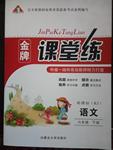题目内容
_____ with so much trouble,we failed to complete the task on time.
A. Faced B. Face
C. Facing D. To face
练习册系列答案
 金牌课堂练系列答案
金牌课堂练系列答案 三新快车金牌周周练系列答案
三新快车金牌周周练系列答案
相关题目
题目内容
_____ with so much trouble,we failed to complete the task on time.
A. Faced B. Face
C. Facing D. To face
 金牌课堂练系列答案
金牌课堂练系列答案 三新快车金牌周周练系列答案
三新快车金牌周周练系列答案